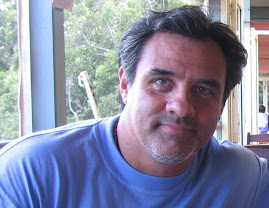The Fragility of the Ego- The Death of Sigmund Freud by Mark Edmundson

Phrases borrowed from critic John Gray...
In Freud's day the longing for authority boosted malignant political movements such as Nazism, but it was also embodied in Freud himself - a patriarchal figure who his followers believed could lead humanity out of darkness.
Freud was shrewd in his dealings with the world; but he also indulged in acts of bravery that could easily have been disastrous. When required to sign a document stating he had been well treated by the Nazis on his departure from Vienna, he could not resist adding, 'I can most highly recommend the Gestapo to everyone.'
Freud's courage went beyond defying tyranny. He also defied his own health. The cancer from which he suffered so cruelly in his final years was the result of his addiction to cigars, but he continued to smoke even when he was dying, after suffering over thirty operations, sometimes using a clothespeg to wedge open his jaw and insert another cigar.
Freud owed a great deal to the celebrated pessimist: Schopenhauer - including the crucial insight that much mental activity occurs beyond the reach of conscious awareness. Schopenhauer severed the link between thought and consciousness that had been so central in western thinking, and - followed by Nietzsche - helped create a new intellectual tradition. Freud developed this tradition boldly, and from it came the new discipline of psychoanalysis.
A month after Freud fled Nazi-occupied Vienna and settled safely in London, Sigmund Freud had an unwelcome encounter with Salvador Dali who visited the frail psychoanalyst in his new home and harangued him on the subject of 'an ambitiously scientific article' that he - Dali - had written on paranoia. At first indifferent, Freud muttered : 'What a fanatic!' But then Freud made a characteristically double-edged observation: 'In classic paintings I look for the subconscious, in surrealist paintings for the conscious.' Probably correctly, Dali interpreted this dictum as 'a death-sentence on surrealism'.
Freud spent his last years struggling to finish Moses and Monotheism, a book where he modified the hostile view of religion he had expressed in earlier writings. The rise of fundamentalism has generated a moral panic, which is expressed in a hysterical condemnation of religion in all its varieties.
Freud never shared this hysteria, or believed that religion could disappear from human life. In The Future of an Illusion he had interpreted religion in conventional Enlightenment fashion: it was an illusion born of fear and ignorance. In Moses and Monotheism he presented a more complex view, which accepted that religion played an indispensable role in developing human capacities. Not inaccurately, Edmundson describes Freud as 'one of that breed of modern pagans who could not give up pondering rich mystery, even as they repudiated the all-knowing sky-god'. However, as Edmundson points out, it was not the pagan worship of mystery but rather the unseen god of Judaism that Freud celebrated in Moses and Monotheism. Without compromising his atheism, Freud argued that it was the Jewish belief in an invisible deity that enabled a new kind of self-examination to develop.

No comments:
Post a Comment